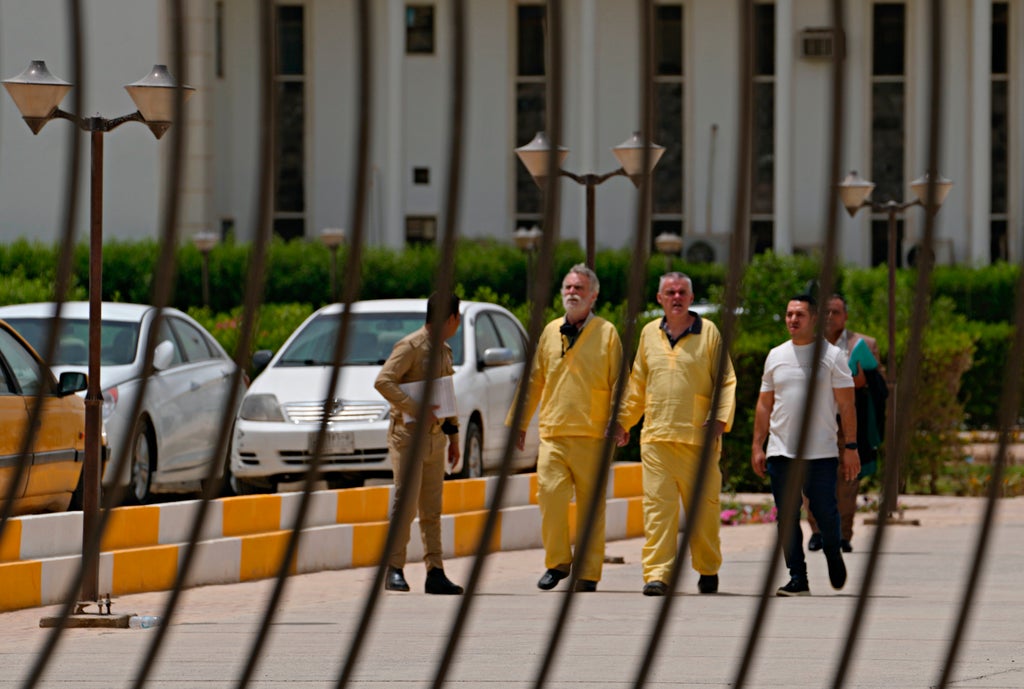
A retired British geologist accused of smuggling historic items out of Iraq who is facing the death penalty has said he did not know he had broken the law.
Jim Fitton, 66, took 12 stones and shards of broken pottery he had found at an archaelogical site in Eridu.
He appeared alongside German national Volker Waldmann in a Baghdad court where he insisted to a three-judge panel he had not acted with criminal intent.
Mr Fitton said he had “suspected” the items he had collected were ancient fragments, but insisted he “at the time didn’t know about Iraqi laws”, or that taking the shards was not permitted.
He stressed it was unclear taking the pieces was a criminal offence as “there were fences, no guards or signage”.
Given his trade, he had a habit of collecting fragments as a hobby but had no intention of selling them, Mr Fitton said.
Yet the head judge said given the nature of the site, it was evident it was prohibited.
“These places, in name and by definition, are ancient sites. One doesn’t have to say it is forbidden,” Jaber Abdel Jabir said.
After Mr Fitton replied that some of the shards were “no larger than my fingernail”, the judge responded: “Size doesn’t matter.”
The items were found in possession of Mr Fitton and Mr Waldmann, who were travelling as part of an organised geology and archaeology tour, as they prepared to fly out of Iraq in March.
Mr Waldmann denied the two artefacts found among his belongings were his, but had been given to him to carry by Mr Fitton.
The next hearing is scheduled for 22 May when the court must determine if the men planned to profit from the shards.

They both could faced the death penalty however legal experts believe that is unlikely.
Mr Fitton’s lawyers plan to submit more evidence, including some from government officials who were present at the archaeological site where the artefacts were taken.
The UK government has been urged to intervene and help try and secure the release of Mr Fitton.
MPs discussed his case in the House of Commons last week, where Foreign Minister James Cleverly said the British ambassador in Iraq raised the case four times with the country’s authorities.







